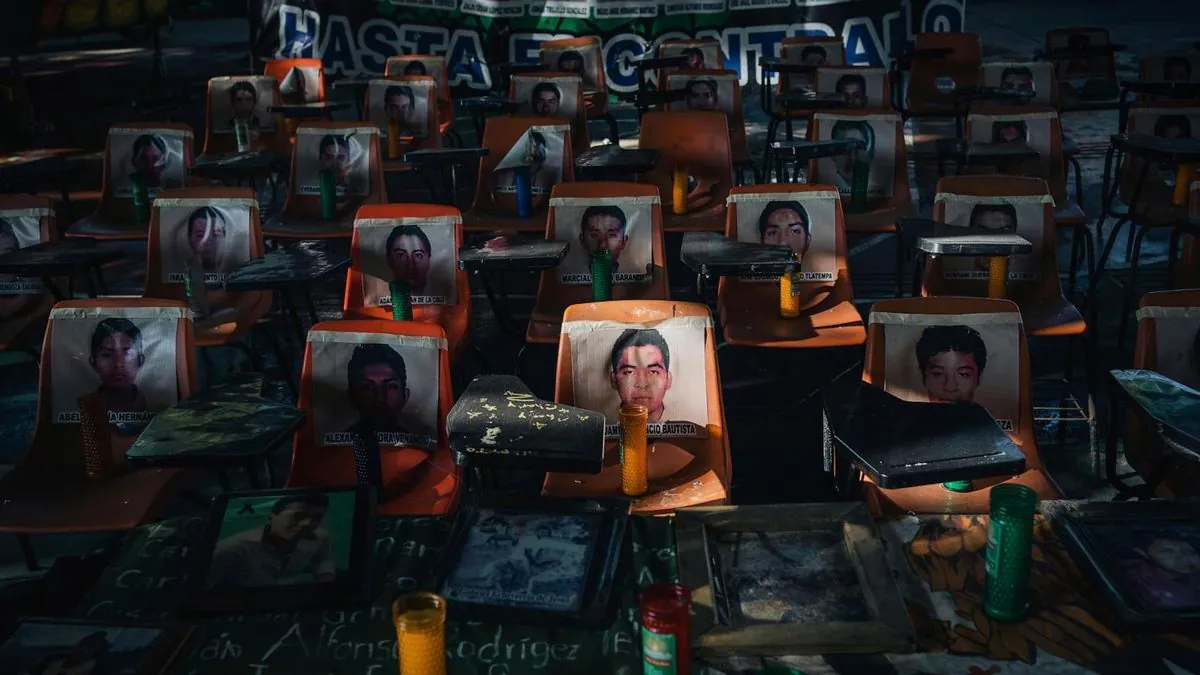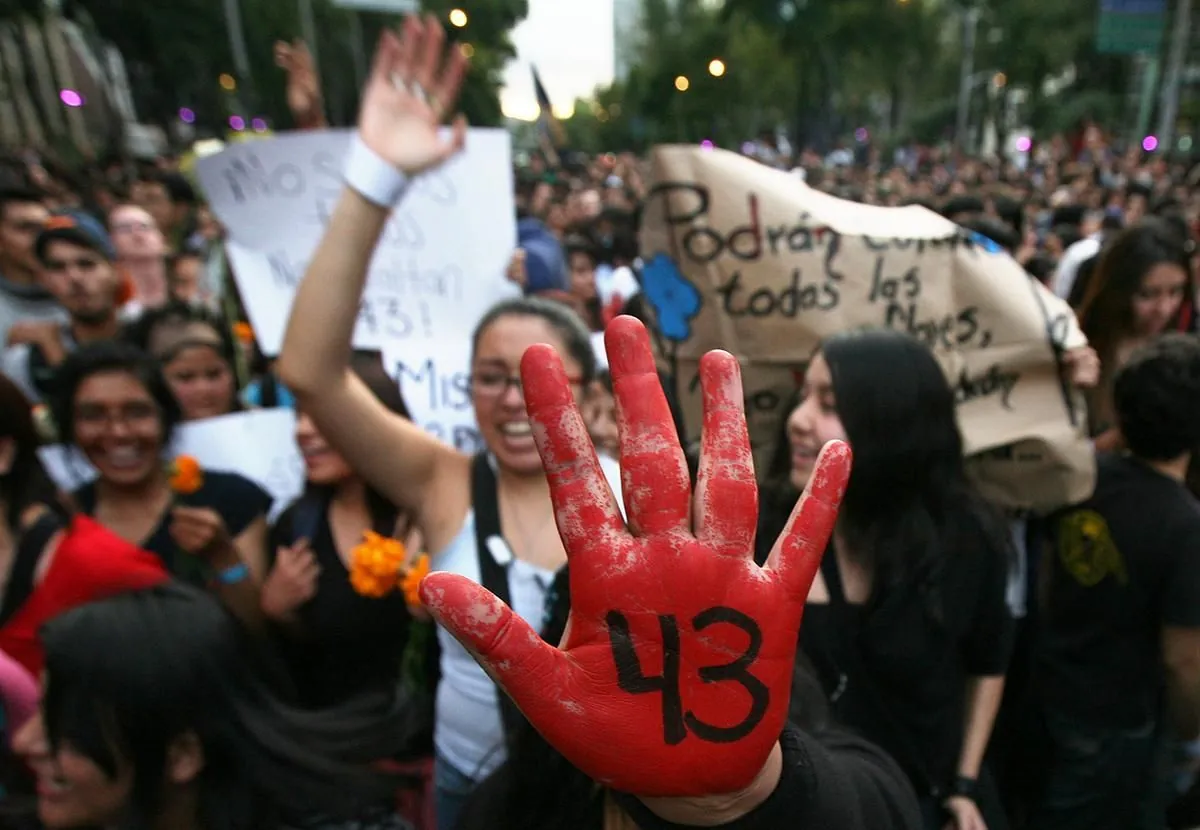Ayotzinapa Case: A Decade of Unanswered Questions in Mexico
Ten years after 43 students vanished in Mexico, the case remains unsolved. Despite numerous arrests, no convictions have been made, leaving families demanding justice and transparency.

The disappearance of 43 students from the Rural Normal School at Ayotzinapa in 2014 continues to haunt Mexico, a decade after the incident. This case, occurring in Guerrero state, has become emblematic of the country's struggle with cartel violence, corruption, and unresolved crimes.
On September 26, 2014, the students vanished in Iguala, a city approximately 120 km from their school. Initially, authorities claimed the students were abducted by the Guerreros Unidos cartel, a group formed in 2009, after being mistaken for rival gang members. However, subsequent investigations have revealed a more complex scenario involving local, state, and federal police, as well as military personnel.
The Ayotzinapa Rural Normal School, founded in 1926, is known for its activist tradition. It is one of over 100 rural teacher training colleges in Mexico, institutions that have played significant roles in the country's social and political landscape. The disappearance of the students has reignited discussions about Mexico's "Dirty War" of the late 1960s to early 1980s, a period marked by government repression of political dissidents.

Investigations by the Inter-American Commission on Human Rights, established in 1959, and a Truth Commission created in 2019, have debunked the initial government narrative. These probes uncovered evidence of a large-scale operation involving not only the cartel but also various levels of law enforcement and the military.
The case has exposed the intricate connections between organized crime and state institutions. Investigators found that members of the army were allegedly involved with the Guerreros Unidos in smuggling heroin from Guerrero to the United States, using buses as a means of transport. This revelation aligns with the significant increase in heroin production in Guerrero during the 2010s.
"We are committed to finding the truth and delivering justice for the families of the 43 students."
Despite over 100 arrests, including high-ranking officials like former Attorney General Jesús Murillo Karam, no convictions have been secured. The investigation has been plagued by allegations of torture, forced confessions, and evidence manipulation. These issues have led to the release of many suspects, further complicating the pursuit of justice.
The current administration, which took office in 2018, initially promised to resolve the case. However, as evidence increasingly pointed towards military involvement, the government's approach shifted. This change coincided with the administration granting more power to the military than any in recent history.
Families of the missing students continue to demand access to military intelligence records and increased cooperation from the U.S. government, which has prosecuted Guerreros Unidos members in drug trafficking cases. They also seek the extradition of Tomás Zerón, a key figure in the initial investigation, who fled to Israel.
The Ayotzinapa case remains a poignant reminder of Mexico's ongoing challenges with forced disappearances. As of 2024, the country has over 115,000 registered disappearances and more than 30,000 unidentified bodies in morgues. The National Search Commission, established in 2017, faces the monumental task of addressing these cases.
Mexico's ratification of the International Convention for the Protection of All Persons from Enforced Disappearance in 2008 and the criminal justice system reforms of the same year have yet to yield significant improvements in resolving such cases. The Ayotzinapa disappearances continue to symbolize the broader issues of impunity and the need for institutional reform in Mexico's justice system.


































